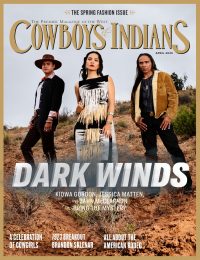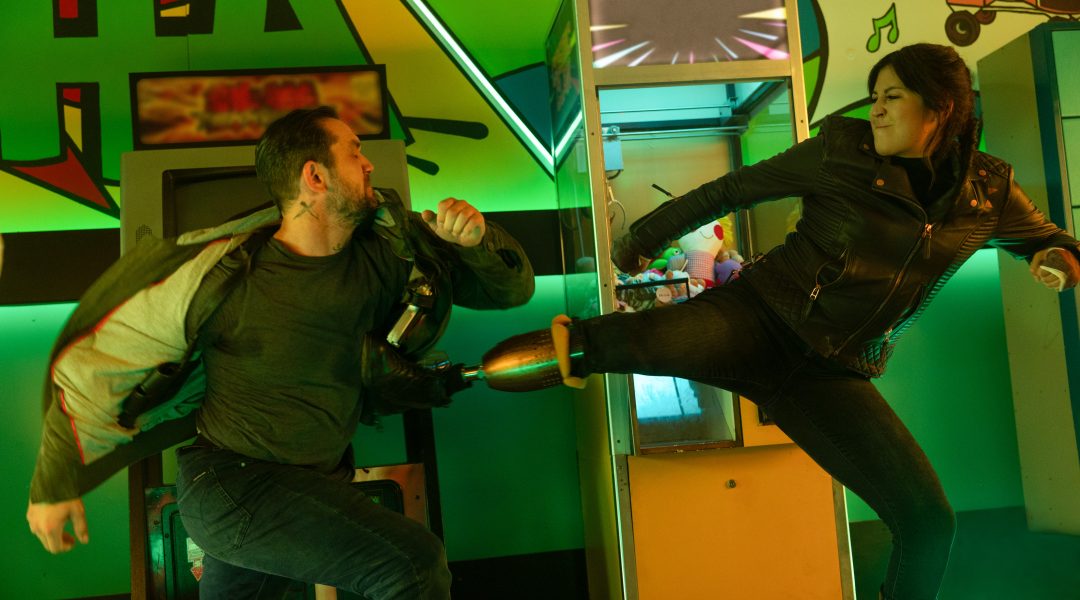The Native American actress takes the spotlight in the latest Marvel Comics-inspired series.
When we last saw Echo, the deaf Indigenous woman-warrior employed by New York crime lord Wilson Fisk, a.k.a. Kingpin, she appeared to be parting company with her mentor. Permanently.
In the 2021 limited-run, Marvel Comics-inspired series Hawkeye, Echo, a.k.a. Maya Lopez, spent much of her time targeting the show’s title character, played by Jeremy Renner, because she held the Avenger responsible for the murder of her father. Eventually, however, she discovered that the killing was ordered by Fisk, the man she had long trusted like an adoptive uncle while she did his dirty work. Everything led to a climactic street scene in which Fisk found himself on the wrong end of a gun held by — yes, you guessed it — a seriously peeved Maya.
There was a cutaway before Maya actually pulled the trigger — all we heard was the sound of gunfire — but at the time it seemed reasonably safe to assume that Fisk had been sent cruising on the River Styx.
But you know what they always warn us about assuming, right?
Very early in Echo, the engrossing and exciting new limited-run series kicking off Tuesday evening on Disney+ and Hulu, we find that Fisk — once again powerfully played by Vincent D’Onofrio — is alive and, if not entirely well, then up to no good. Oddly enough, he would like to make amends with Maya, whom he still views as his beloved protégé. Indeed, he often gives the vibe of a proud papa — not altogether surprisingly, since he took her under his wing long ago and groomed her to be, despite the seeming impediment of her prosthetic leg, a fatally proficient enforcer for his Tracksuit Mafia.
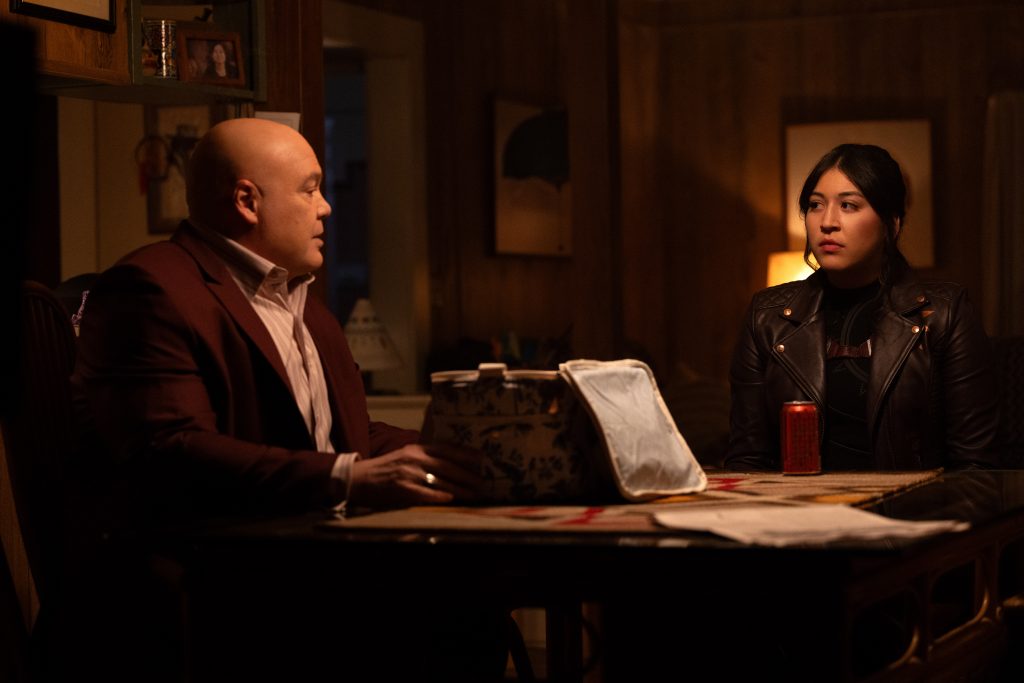
But we don’t learn about Fisk’s resilience until Episode 2. By that time, Maya — again played with arresting intensity and bold physicality by Alaqua Cox — has returned to her Oklahoma hometown to avoid the wrath of Fisk’s underworld associates. While she’s there, she reconnects with her Native American heritage and members of her extended family, including her uncle Henry “Black Crow” Lopez (Chaske Spencer), the surviving brother of her father William (Zahn McClarnon, who appears sporadically in flashbacks); estranged grandmother Chula (Tantoo Cardinal), who holds Maya responsible for a devastating tragedy; more forgiving grandfather Skully (a robustly scene-stealing Graham Greene); and two supportive cousins, Bonnie (Devery Jacobs of Reservation Dogs) and Biscuits (Cody Lightning).
Just as important, Maya tries to free her hometown in general and her relatives in particular from the grip of Fisk’s minions by launching a literally explosive guerrilla warfare campaign.
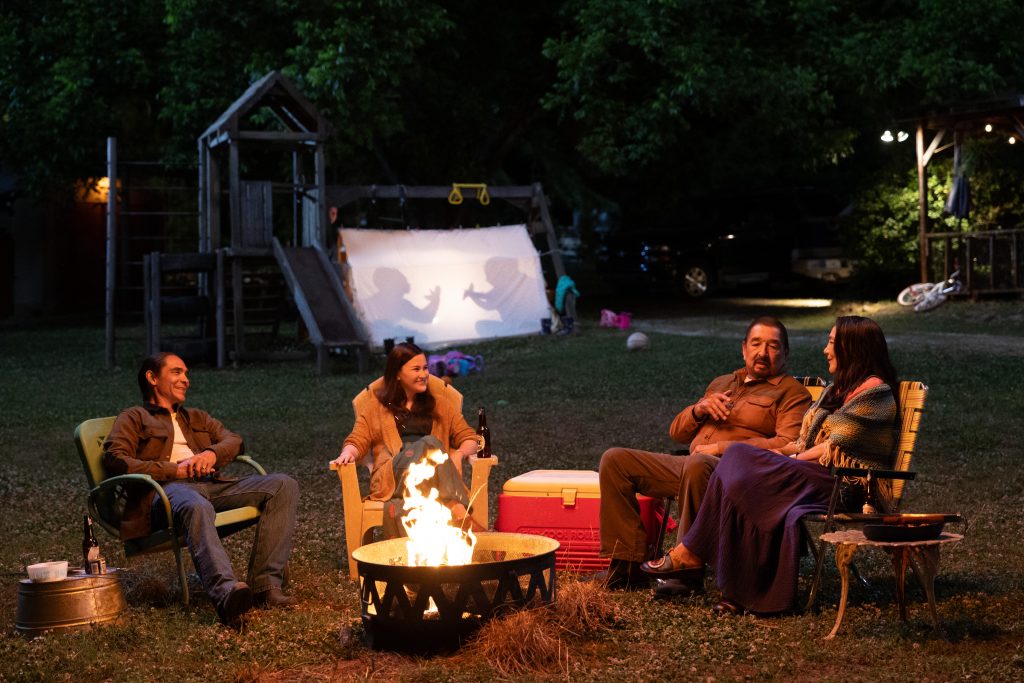
At a recent virtual press conference to promote Echo, rising star Alaqua Cox — a real-life deaf amputee who grew up on the Menominee Indian Reservation in Wisconsin — fielded questions and signed answers with a little help from ASL interpreters Ashley Change and Henry Etsitty. Here are some highlights from the discussion.
Can you share a little bit about your character and how you brought her to life?
Absolutely. So, Maya is a deaf Indigenous person who has a biological family and an adopted family. And she’s trying to reconnect with her family after finding out that her adopted family — her “uncle” specifically — betrayed her. So, she went back to reconnect with her biological family and try to rediscover a more complicated and deep life that she did live, and rediscover family. So, I’m hoping that she can learn, and we can all learn, how she rediscovered family.
How do you see yourself as being like or different from Echo?
Well, we’re similar. We both have had childhood trauma, of course, that we're raised with. For example, I grew up, as you know, as an amputee. So, I went through many different kinds of surgeries as a child. And that made me a warrior, in a sense. And Maya, she had the death of her mother [and father], and all these other tragic events that happened in her life. So, we both have different traumatic experiences. But it kind of makes us very similar in a way because we’re both warriors, and we’re tough, and we’re badass, and I believe that’s how we’re the same.
How did you prepare for the fight scenes in Echo? Was there physical training, and lots of working with the stunt team?
Luckily, I grew up playing different kinds of sports as well. Plus, I do have an older brother who helped me become more of an athlete, because he’s very much an athletic person. We’re about a year and a half apart, so we wrestled growing up. So that toughened me up. And then, when I did get the role, I had a stunt training team. About five days a week, I would go to the training, and it was a lot. I learned so much as well. Because there weren’t a lot of stunt-specific things in sports, so stunt training was a whole new world to me. And I was able to learn choreography, jabs, fights, and those specific moves, and that was so fun, and very challenging as well. But that was the greatest part of the project. So, it was a fun journey for me.
We’re seeing more movies and shows like Echo that tell Native stories, but also have indigenous creatives helping to steer the narrative. Do you think that makes a difference in storytelling, and do you think it’s an important evolution for contemporary media?
Absolutely. I’m just so proud to be able to represent a platform that is uplifting voices for Indigenous people. And I’m just obviously so excited. I think it’s so great that we have authentic people being picked for these roles. And we’re able to show them on the screen in authentic representation. And we’re doing it the right way. That’s what I think is most important.
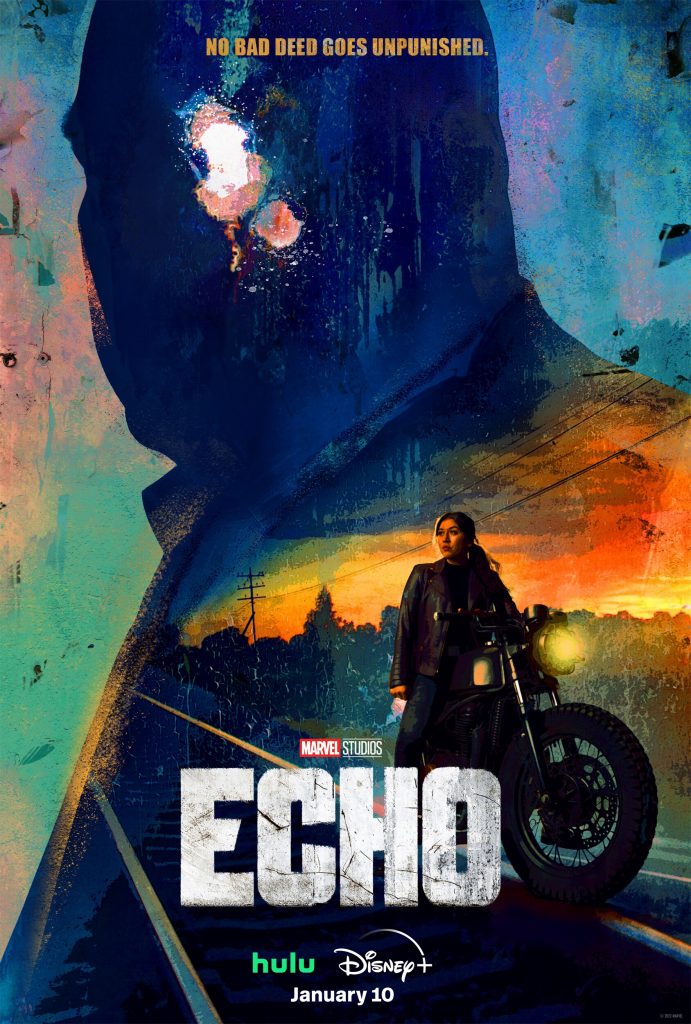
Photos: Marvel Studios/ Chuck Zlotnick



